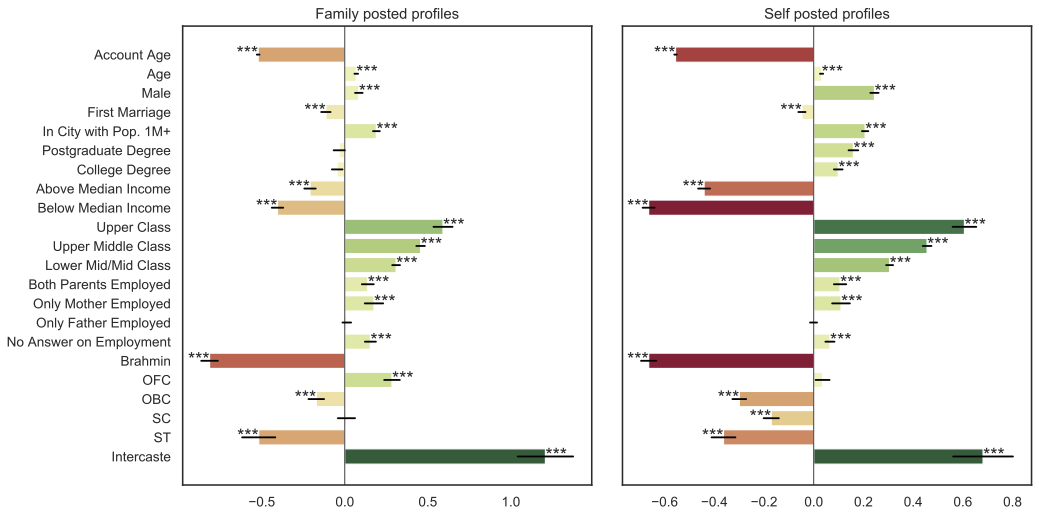I research how humans behave by observing the things we say, what we do, and who we are. My research combines linguistic analysis and network science together to understand behavior in its natural social context. I collaborate with colleagues from areas such as Psychology, Linguistics, Digital Humanities, and Sociology to improve our theories using data-driven insights and methodologies.
Image caption: Indians use online matrimonial websites to complement the traditional arranged marriage process. Data from these websites can reveal widespread attitudes on caste identity through individuals signaling their openness to marrying someone from a different caste, i.e., intercaste marriage. This figure shows a comparison of demographic factors affecting openness to intercaste marriage in family-posted (left) versus self-posted (right) matrimonial profiles on a major Indian website. Values for each factor reflect a logistic regression coefficients for predicting whether that individual will be open to intercaste marriage. The difference that social status as a function of education, income, affluence, and to some degree caste, drive attitudes, where lower social status individuals are less open to intercaste marriage. Significance levels for model coefficients are reported as ‘***’ for p<0.001 , ‘**’ p<0.01 , and ‘*’ p<0.05, and bars show standard errors. This figure is taken from a paper by
Ashwin Rajadesingan, Ramaswami Mahalingam, David Jurgens, “Smart, Responsible, and Upper Caste Only:Measuring Caste Attitudes through Large-Scale Analysis of Matrimonial Profiles” in the Proceedings of the AAAI International Conference on Web and Social Media (ICWSM), 2019.
Accomplishments and Awards
- 2021 Propelling Original Data Science (PODS) Grant Award: Measuring Racial Disparity in the Language of Physician-Patient Interactions
